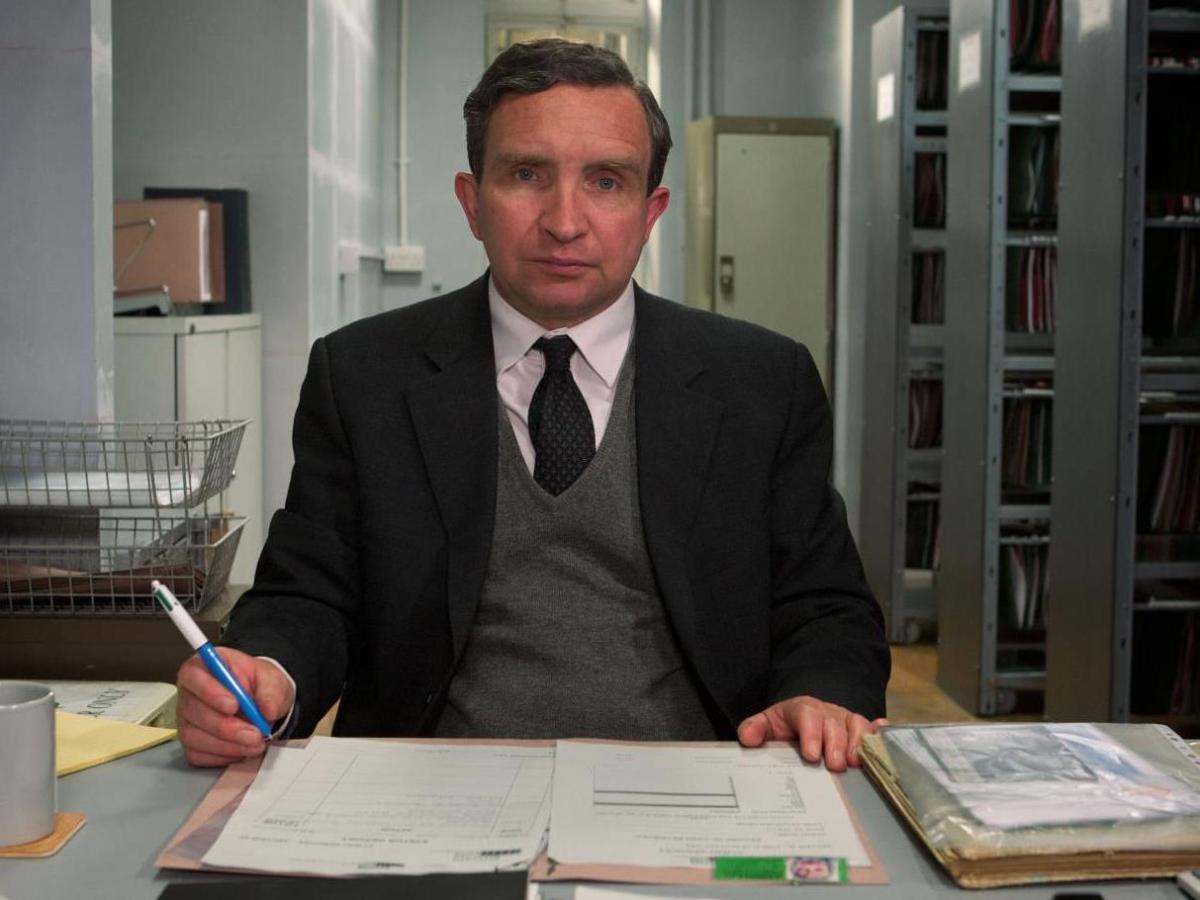John May (Eddie Marsan, Filth) spends his days immersed in the one inevitability of existence everyone else tries to avoid: that it always comes to an end. For the South London Council, he has spent 22 years sifting through the markers of mortality and the little things left behind, specifically by those sans friends or family to otherwise do so. He farewells the abandoned and alone, taking pride in creating a send-off that honours what he can glean of their memory.
Reflecting the increasingly transactional thrust of contemporary society, his meticulousness and kind-heartedness is his downfall in a government system intent on cold-hearted efficiency, with May told his employment will cease after his last case. As he endeavours to piece together the life of an elderly man by the name of William Stoke, the send-off he compiles is as much for his own isolation as it is for his subject; however in investigating the imprint of a stranger – complete with the young woman, Kelly (Joanne Froggatt, TV’s Downton Abbey), left in his wake – May finds something more than melancholy.
In only his second film, writer/director Uberto Pasolini (Machan) crafts an ode to the unexpected and the unavoidable, to the colourful surprises that make the march towards finality more than just a grueling grind. The shadow of the impending conclusion is inescapable, but Still Life finds beauty in the tender moments that linger despite their fleeting nature. This is a feature that understands the constant tragedy of humanity’s short time alive, and the troubling modern trend of disconnection at the expense of community, but still celebrates what we have rather than what we lose in its swell of delicate observation.
With the aid of cinematographer Stefano Falivene (Bel Ami), Pasolini manifests a calm aesthetic to match his measured tone, the feature becoming a study in precision and poignancy. In an opening compilation of various funerals, it demonstrates patience befitting the common meaning of its title; indeed, the entire conceit thrives, quietly but unmistakably, in glimpsing the extraordinary within the ordinary. Every seemingly non-descript frame ripples with revelation, whether about broader existential concepts, or about the caring core of the protagonist. In static frames that provide a slice of life for the latter, May’s symbolic status becomes clear, constructed from seemingly average elements but overflowing with compassion and consideration.
It is far from surprising, then, that Marsan soars as the film’s heart and source of hope, as a solitary man doing a solo job to little satisfaction but his own yet never showing his frustration or feelings of futility. For all the thoughtfulness evident in Pasolini’s script and subtle screen enactment, without a portrayal to match the entire concept could easily have been rendered moot. Thankfully, its lead delivers, exceeding the familiar trappings of the mild-mannered and middle-aged, and bringing softness to its mannered and maudlin leanings. In a rare spotlight role, Marsan copes as well with the on-point minutiae as he does with the few contrasts that come in the form of dark humour, the resigned vibrancy of Froggatt, and an incongruous finale. Perhaps his casting and composure best prove the feature’s point, the performer the very model of a gleaming gem in an endless sea of earnest sorrow, the rough and the resonant all part of the package.
Rating: 4 out of 5 starsStill Life
Director: Uberto Pasolini
UK / Italy, 2013, 92 mins
Release date: July 24
Distributor: Palace
Rated: M
Actors:
Director:
Format:
Country:
Release:





